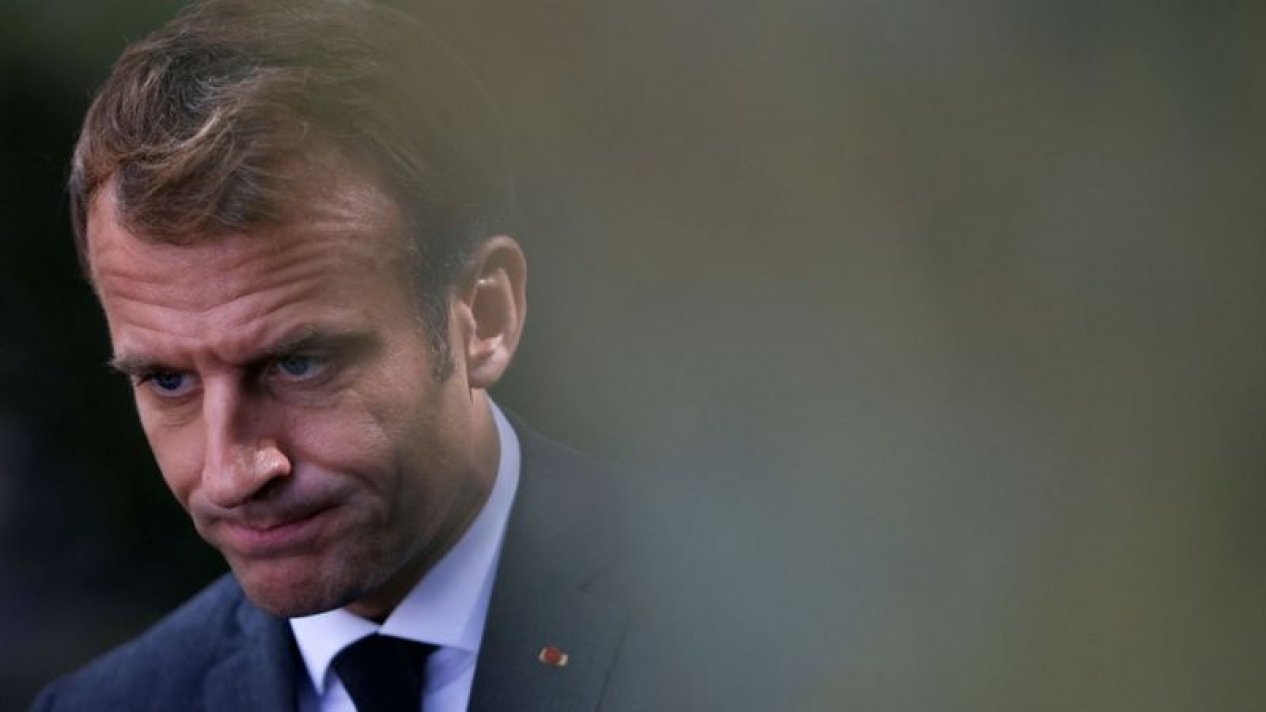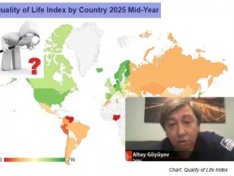
The situation around the murder of 17-year-old Nahel, committed by the police, is increasingly brewing in France. It is said that he was killed ‘due to disobedience to the police.’
Although the killer was detained, protests began in the country. Thousands of demonstrators took to the streets of the city of Nanterre, where the incident took place, to protest against police brutality. In other words, France is currently witnessing chaos and mass acts of defiance against the authority of President Emmanuel Macron. An angry mob sets fire to cars, destroys urban infrastructure, makes businesses and streets useless. Collisions have also been reported. The police tried to disperse the rally, using tear gas and rubber bullets, and about 400 people were detained. The shocking murder and subsequent events cause even more discontent in French society. Public transport in the Paris region will be limited amid unrest that began in the country after the police killed a 17-year-old driver who refused to comply with the demands of the police. The Minister Delegate in charge of transport, Clément Beaune, said that this was due to the fact that 20 buses were burned overnight.
According to French experts, protest actions in French society have been brewing for a long time. All it needed was a push. It is noted that in general, the period of Macron’s rule did not bring any social, psychological and spiritual benefits to French society. Macron’s rule is remembered in the country for prolonged protests, cases of racial and ethnic discrimination and ‘reforms’ that further worsened the well-being of the people.
Faktyoxla Lab. has tried to find out why the French people are unhappy with Macron.
Emmanuel Macron, 45, came to power in 2017 promising reforms in France and fresh new policies. But opponents accuse him of increasingly anti-democratic behavior. Macron first felt the full force of French anger in March this year, when protesters gathered across the country to demonstrate their opposition to the increase in the retirement age. At that time, observers assumed that the situation in France was getting out of control of the authorities, more reminiscent of the events that unfolded in the French capital in May 1968 and almost led to mass riots in the country. At the end of March, the unions claimed that 3.5 million people showed up for demonstrations across the country. In Paris, union leaders said a record 800,000 people marched peacefully through the city (police cited 119,000 protesters) to demand the government backtrack on fiercely contested pension policy changes. Then the protest against the actions of the authorities was overshadowed by outbreaks of violence and vandalism. In Paris alone, some demonstrators dressed in black and wearing masks led the march and destroyed bus stops, billboards, storefronts, McDonald’s facades and newsstands, leaving shards of glass and piles of burning trash cans in their wake. They also dismantled the iron bars around the trees and smashed the paving stones, which they then threw at the police. Mass protests took place in Marseille, Lyon, Besancon, Rennes and Arles, as well as in other French cities. Interior Minister Gérald Darmanin said most of the 103 people arrested in Paris were ‘mostly young’ and were known members of ‘ultra-left’ groups.
That was where Macron showed himself, declaring that he would continue the reform of the pension system, which caused outrage among the French people, and compared the protesters to the rioters who stormed the Capitol in Washington on January 6, 2021. The ‘rebels,’ not tired of the two months of fighting the pension reform, which Macron and the government adopted without approval by the National Assembly, using the Constitution, responded to the president and government with new strikes and protests.
President Macron, in turn, said in a television interview that pension reform is necessary to put the state financial system in order. Perhaps he shouldn't have compared the demonstrators and strikers to the Trump supporters who tried to take over the Congressional building in the US capital a little over two years ago and the Brazilians who took over Brazil's parliament last year after losing the presidential election to Jair Bolsonaro. Because this comparison then caused a new explosion of anger both on the streets and in social networks. They were not affected by Macron's recognition of the fallacy of his actions, because he sees the error only in the fact that he did not convincingly explain the tasks of reforming the pension system and its necessity. Naturally, the French did not like the words of the head of state that the government "cannot agree with the rebels and factions."
Emmanuel Macron has repeatedly promised, especially during election campaigns, to listen more to the opinion of the common people when making decisions. Yet another failure to deliver on that promise has sent his popularity to an all-time low since the Yellow Vests movement in early 2019. According to an Ifop poll published in Le Journal du Dimanche, only 28% of poll participants approve of his activities as president.
In April 2023, Macron will address the country for the first time since signing the law on his controversial pension reform as he faces warnings that the political and social crisis caused by the changes is not yet over. While the French constitution allows governments to bypass parliament under certain conditions, its use in France is increasingly seen as undemocratic amid social tensions and growing distrust of politicians.
Polls have consistently shown that a majority of French people continue to oppose the reform, which the government has pushed through parliament, using a controversial mechanism to allow it to be passed without a vote.
Meanwhile, Macron's personal popularity ratings have continued to decline, with some analysts suggesting he has given far-right leader Marine Le Pen a head start on the long road to the 2027 election. The press widely dubbed it a "Pyrrhic victory" in honor of the Greek king who defeated the Romans, but in the process, most of his army was destroyed.
Then the leader of the powerful French trade union CGT, Sophie Binet, said that Macron was ‘on his way to becoming the president of chaos.’ “Emmanuel Macron is far from having to deal with the social and political crisis that he continues to dangerously fuel,” Le Monde wrote in an editorial. The newspaper noted that confidence in the country’s democratic institutions had fallen.
The crisis also comes at a time of growing international trouble for Macron, who has faced accusations of flirting with China during a visit to Beijing.
"Emmanuel Macron no longer has power... so he suddenly becomes violent and authoritarian," far-left MP Clementine Autain told French television.
French President Emmanuel Macron has reached a ‘dead end of chaos,’ Le Figaro columnist Ivan Rioufol wrote. His main mistake is that he began to position himself in contrast with populism, but sometimes the aspirations of populists must be respected: when they demand more democracy for the doomed and less they pour dirt on the powerful.
As the author writes, the crisis in France is raging not just in the economic or social sphere, but the fact is that part of society feels left out. And the government, which is trying to accelerate the pace of reforms, is actually doing nothing about the crisis of democracy, the author of the article notes. As a result, the French may vote against their power in the upcoming European elections.
The author of the article gives an example of how the Macron government "plays with words": the president of France speaks of "inclusive patriotism", but in fact rejects the demand of the people to assimilate visitors. And this does not make Macron's policy any clearer. So, more than a thousand experts from all over the world wrote a petition asking them not to rush to restore Notre Dame in order to preserve its identity, frightened by Macron's "mega-aspirations".
But a former British army officer, Colonel Richard Kemp, is sure that for a man who constantly releases stupid comments, Emmanuel Macron is not a complete fool. He understands that in the interconnected world of the 21st century, where international threats cannot be divided by region, there are no longer limits on range or geography. Taiwan's semiconductors and Pacific trade routes - and their potential disruption or failure - are as important to Europe as they are to Japan, Australia, India and the US.
However, this reality and Macron's awareness of it did not stop the French president from reportedly trying to block the establishment of a NATO office in Tokyo - the alliance's first outpost in the Indo-Pacific - on the grounds that it is geographically distant. Of course, this pathetic excuse would not be the real reason for his objections. First, Macron hopes to avoid anything that could increase tensions with Beijing, especially after his attempts to flirt with Xi Jinping on behalf of French business. This forced the French to distance themselves from American efforts to separate from China, which is why, after his recent visit to Beijing, Macron suggested that Europe drop the Taiwan dispute in order not to become an American ‘vassal,’ writes Richard Kemp.
In his view, this distaste for the US leads to the second point of self-interest:
- Macron wants to lead Europe, although he is unable to raise the price that this will entail. It's hard to believe that he should continue this unrealistic obsession, driven by arrogance rather than real politics, even as Europe's dependence on Washington has once again been vindicated by the war in Ukraine.
- An even more parochial motivation for Macron's position is that he still worries about the exclusion of France from Aukus and the loss of the diesel submarine deal with Australia in favor of British-American nuclear submarines.
Analysts say the French government will have to endure several no-confidence votes in the short term. The Macron government has faced votes of no confidence in the past, but this time the stakes are much higher.
According to Alistair Cole, a professor of politics and Head of the Department of Government and International Studies at Hong Kong Baptist University, Macron is acting as if a country with an accumulated public debt of 3 trillion euros (114 percent of GDP) does not need to worry.
But worst of all, Macron did not want to establish a direct connection with the French people by cutting out political parties and trade unions. ‘Macronism’, as it was first defined, has failed.




















